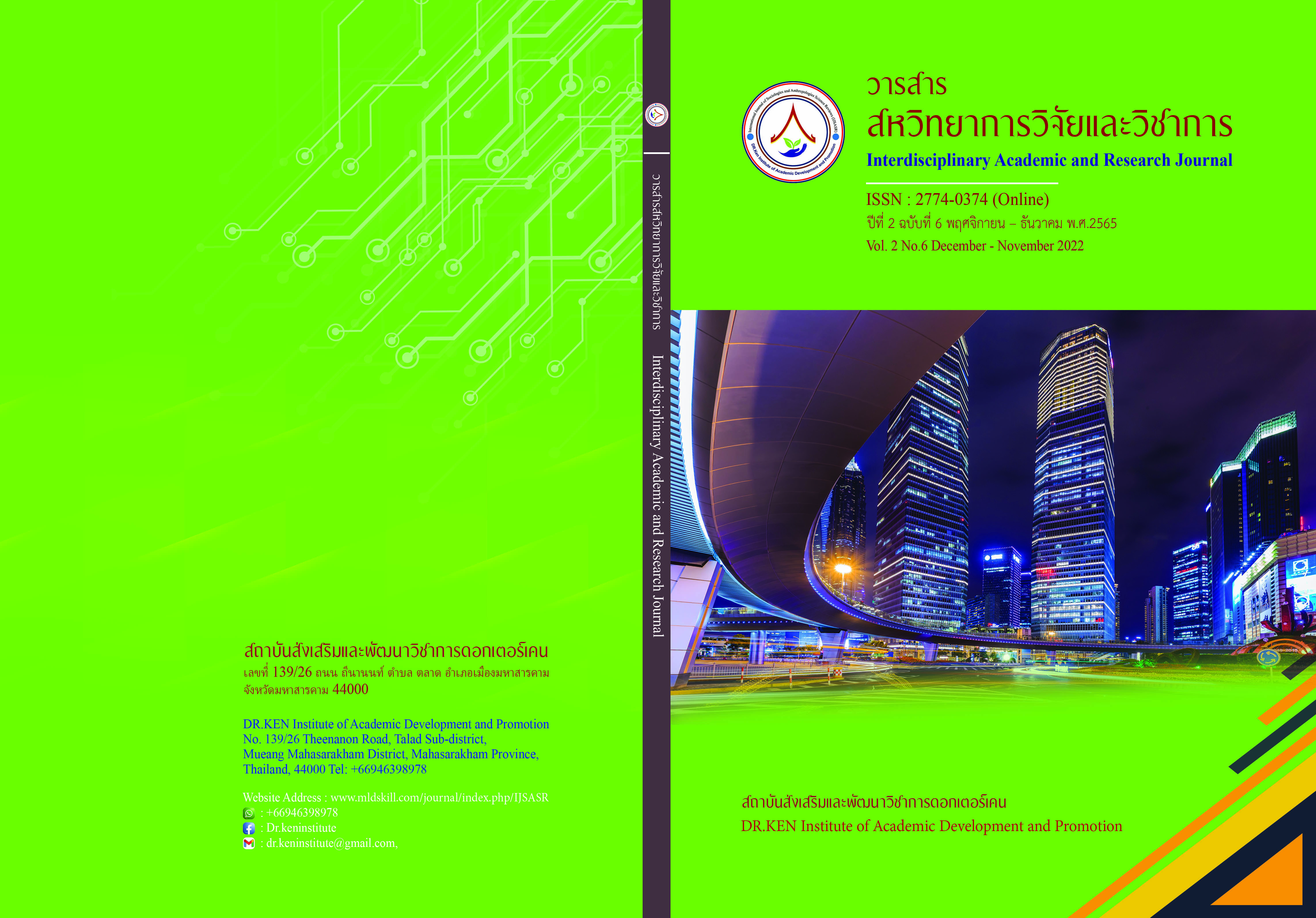Sports Psychology for Northeastern Thai League Football Referees
DOI:
https://doi.org/10.14456/iarj.2022.158Keywords:
Sports Psychology; , Thai League Football RefereesAbstract
The minds, hearts, and emotions of Thai League football referees all affect the physical abilities and technical abilities of Thai League football referees, and vice versa. The mindset, motivation, self-confidence, self-awareness, and self-assessment in each game that is on duty to judge the Thai Football League match is the same today, whether it is those who want to participate. In football and the pursuit of excellence, the importance of sports psychology is seen as having a profound effect on the decision-making of the game and also leading to the control of mindful experience that influences the ability to compete against obstacles. With high competition and a lot of pressure, for this reason, sports psychology is very important to referees in the Thai Football League. This article the objective is to suggest and provide sports psychology knowledge for referees in the Thai Football League in the Northeast for the 2022-2023 season, with content about tension pressure and building self-confidence and emotional control of judges on the playing field, together with principles and techniques for using sports psychology with athletes and coaches on the playing field. In summary, sports psychology is one branch of sports science that affects both the physical and mental performance of football referees. This science can be used to promote and develop the competence of Thai football referees in the Thai League to the fullest, along with the development of physical fitness, which will lead to both physical and mental strength. Football referees can perform their duties on the pitch with efficiency, and focus and without emotional distress that interferes with their performance of excellence in refereeing football with the fairness and integrity purpose of those involved.
References
จรินทร์ ธานีรัตน์. (2512). ประวัติหลักการพลศึกษา. กรุงเทพฯ : ไทยวัฒนาพานิช.
ถนอมวงศ์กฤษณ์เพ็ชร์. (2536). แนวคิดและทิศทางของวิทยศาสตร์การกีฬาในประเทศไทย. กรุงเทพฯ : จุฬาลงกรณ์มหาวิทยาลัย
นฤพนธ์ วงศ์จตุรภัทร. (2536). ประวัติและพัฒนาการจิตวิทยาการกีฬาในต่างประเทศ. เอกสารประกอบการอบรมสัมมนาจิตวิทยาการกีฬา.
ประนมพร จ๋วงพานิช. (2548). จิตวิทยาการกีฬา ใน วิทยาศาสตร์การกีฬา. กรุงเทพฯ : ห้างหุ้นส่วนจำกัด มีเดีย เพลส
รณชัย คงสกนธ์. (2557). จิตวิทยาการกีฬา ความจำเป็นในปัจจุบัน. วารสาร Bangkok Health Research Center, 6 กุมภาพันธ์ 2557.
สมบัติ กาญจนกิจ และสมหญิง จันทรุไทย. (2542). จิตวิทยาการกีฬา แนวคิด ทฤษฎี สู่การปฏิบัติ. กรุงเทพฯ : สำนักพิมพ์แห่งจุฬาลงกรณ์มหาวิทยาลัย.
สืบสาย บุญวีรบตร. (2536). จิตวิทยาการกีฬากับโค้ช. เอกสารการสัมมนาผู้สอนจิตวิทยาการกีฬา. ชลบุรี : วิทยาลัยพลศึกษาจังหวัดชลบุรี.
Baumeister, Roy F., Vohs, Kathleen D., & Tice, Dianne M. (2007). The Strength Model of Self-Control. Current Directions in Psychological Science.16 (6), Doi: https://doi.org/10.1111/j.1467-8721.2007.00534.x
Baumeister, R. F., Bratslavsky, E., Muraven, M., & Tice, D. M. (1998). Ego depletion: Is the active self a limited resource? Journal of Personality and Social Psychology, 74(5), 1252–1265. https://doi.org/10.1037/0022-3514.74.5.1252
Cox, R. H. (1990). Sport Psychology Concepts and Application. 2nd edition. New York: McGraw-Hill.
Joao Aragao e Pina. (2021). Self-efficacy, mental models and team adaptation: A first approach on football and futsal refereeing. Journal of Psychology of Sport & Exercise. 52 (2021), 101787, Doi: 10.1016/j.psychsport.2020.101787
Roy David Samuela. (2018). Hi ref, are you in control? Self-control, ego-depletion, and performance in soccer referees. Journal of Psychology of Sport & Exercise 38 (2018) 167-175, DOI: https://doi.org/10.1016/j.psychsport.2018.06.009
Downloads
Published
How to Cite
Issue
Section
License
Copyright (c) 2022 Sarstrawit Wongbutleewatthana

This work is licensed under a Creative Commons Attribution-NonCommercial-NoDerivatives 4.0 International License.
Copyright on any article in the Interdisciplinary Academic and Research Journal is retained by the author(s) under the under the Creative Commons Attribution-NonCommercial-NoDerivatives 4.0 International License. Permission to use text, content, images, etc. of publication. Any user to read, download, copy, distribute, print, search, or link to the full texts of articles, crawl them for indexing, pass them as data to software, or use them for any other lawful purpose. But do not use it for commercial use or with the intent to benefit any business.
















.png)


